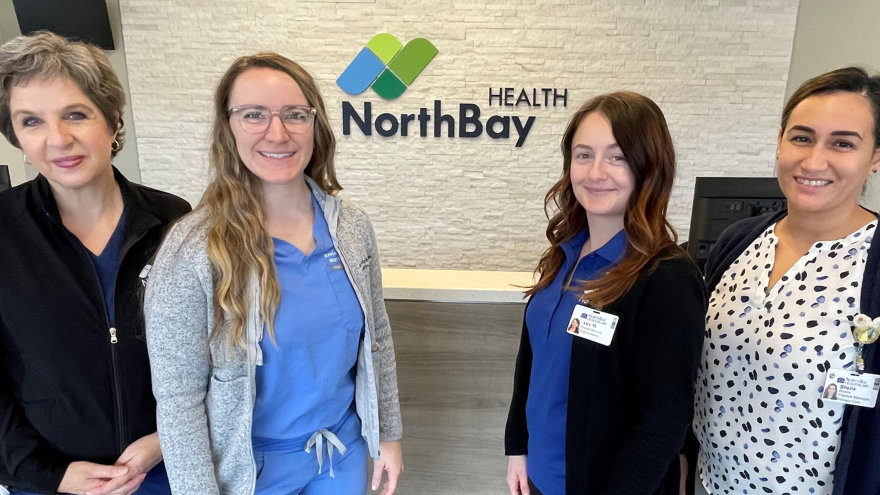Still Time Left for a Vaccine

It’s January and the heart of flu season, but don’t worry, I’t not too late to receive a flu vaccine or an updated COVID-19 vaccine.
After all, health experts warn that there are still a few more months of “flu season” ahead.
“As predicted, we are seeing rising rates of COVID, flu and RSV in the community, resulting in a manageable increase in hospitalizations,” noted Seth Kaufman, M.D., Vice President and Chief Medical Officer/Chief Quality Officer for NorthBay Health. “While we are seeing rising rates, we still have the ability to mitigate the spread of these infections. It is not too late to get vaccinated, which will decrease your risk of severe illness, death and Long COVID.”
Every person ages 6 months and older, and especially those over age 60, should get the flu vaccine every year, Dr. Kaufman added. But don’t wait too much longer. According to the Centers for Disease Control and Prevention, flu viruses are unpredictable and change over time, so the vaccine you had last year may not protect you from this year’s strains.
The seasonal flu is caused by two types of viruses: influenza A and influenza B. Both viruses can circulate at the same time, but one type generally dominates each season, according to the CDC.
Flu symptoms typically include sore throat, runny nose, congestion and cough. Fatigue, fever, headache and muscle aches are also common symptoms, and some people experience vomiting or diarrhea.
Antiviral treatments such as Tamiflu can help minimize symptoms, but they need to be taken within the first few days of illness. Home remedies and over-the-counter medications can also help relieve symptoms.
And, if you’ve already had COVID-19, it is recommended by the CDC that you get an updated COVID-19 vaccine to protect yourself further.
Even though the holidays are over, people will still gather for Super Bowl parties and other festive occasions. The CDC has several tips to reduce your risk:
- If you don't feel well, stay home.
- Move some activities outside, and improve ventilation inside.
- Consider wearing a mask at indoor gatherings, especially large ones.
- Wash your hands with soap and water, often.
- Avoid sharing cups, straws or anything that goes in the mouth.
Finally, if you’re not feeling well and believe you have COVID, Dr. Kaufman advised that you take advantage of the widespread availability of rapid tests to make certain.
“However, it is important to note that relying solely on a single rapid test is not adequate to rule out COVID. The FDA recommends taking two rapid tests over a 48-hour period. Take a third test 48 hours after your second test if you do not have symptoms.”
To schedule a vaccine appointment, call (707) 646-5500. Established NorthBay Health Primary Care patients can contact their provider or schedule a vaccine appointment by calling (707) 646-5500. Not a NorthBay Health patient? Consider becoming one during Open Enrollment. Ask your health plan if NorthBay Health is an option. Visit our Open Enrollment page for more information about switching to NorthBay Health, as well as a list of accepted insurance plans.



